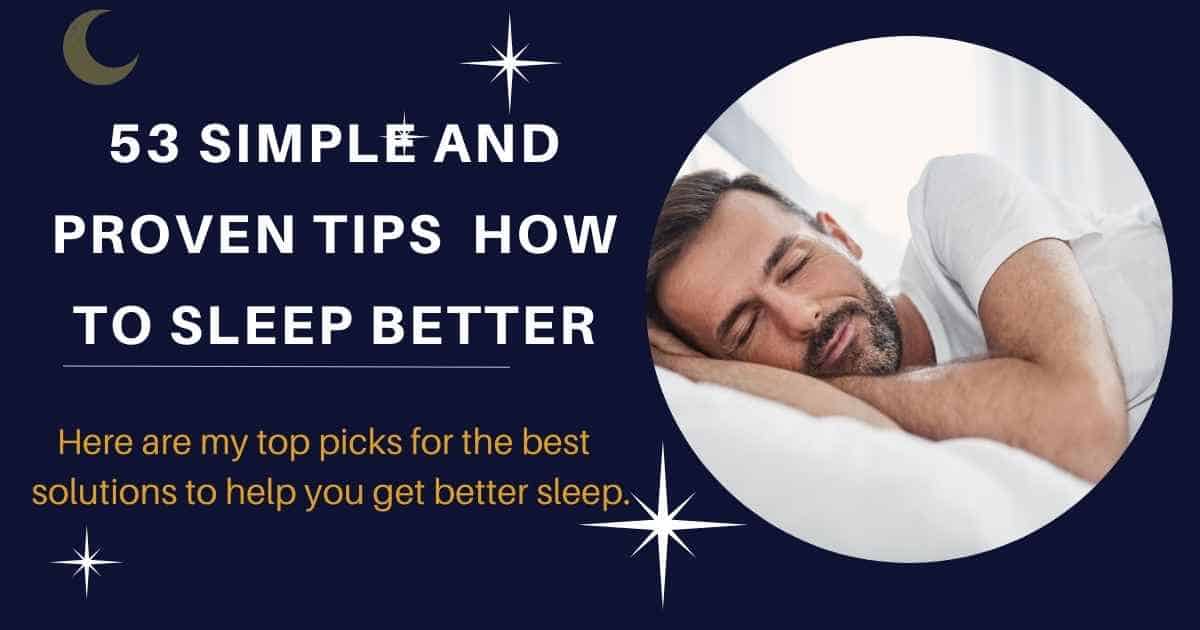A good night's sleep can sometimes be difficult to get. Or worse, it's every morning that you wake up tired and frustrated from poor sleep quality. You NEED to sleep better!
If this is you, then this guide is for you. Because this was me.
I started this blog to share the remedies, tips and tricks I learned on how to sleep better.
So here they are ... 53 tips to help you get better sleep and improve your life!
Tips To Sleep Better in 2022
1. Sleep Better: Get An Air Purifier and Humidifier
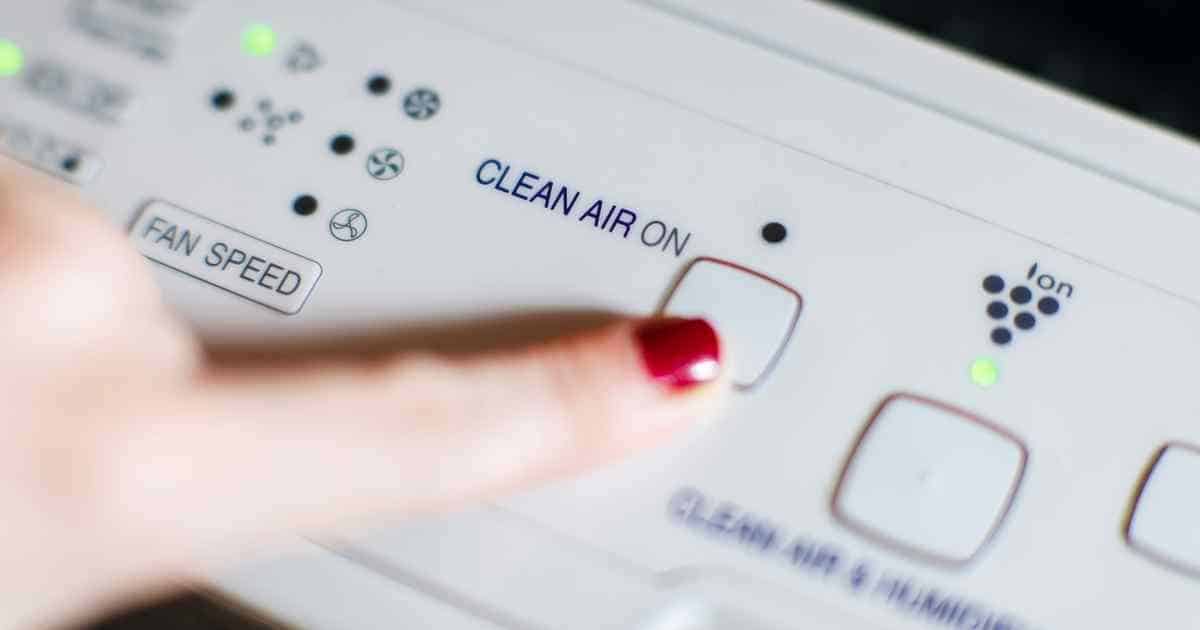
Why is an air purifier my #1 tip to sleep better?
Its simple: if the air in your home or office is causing you irritation all day and night, then it will cause irritation and negatively impact your sleep.
An air purifier that filters out pollen, dust, smoke, mold and other allergens can reduce inflammation and help you sleep better.
If you're interested in discovering some of the best air purifiers on the market, check out my post on the best air purifiers for mold. (Hint: they are also great for filtering out the other irritants and allergens that may contribute to your poor sleep quality.)
A humidifier can help you sleep by reducing snoring that can be caused by dry nasal passages and airways.
2. Wear Sleep Earbuds
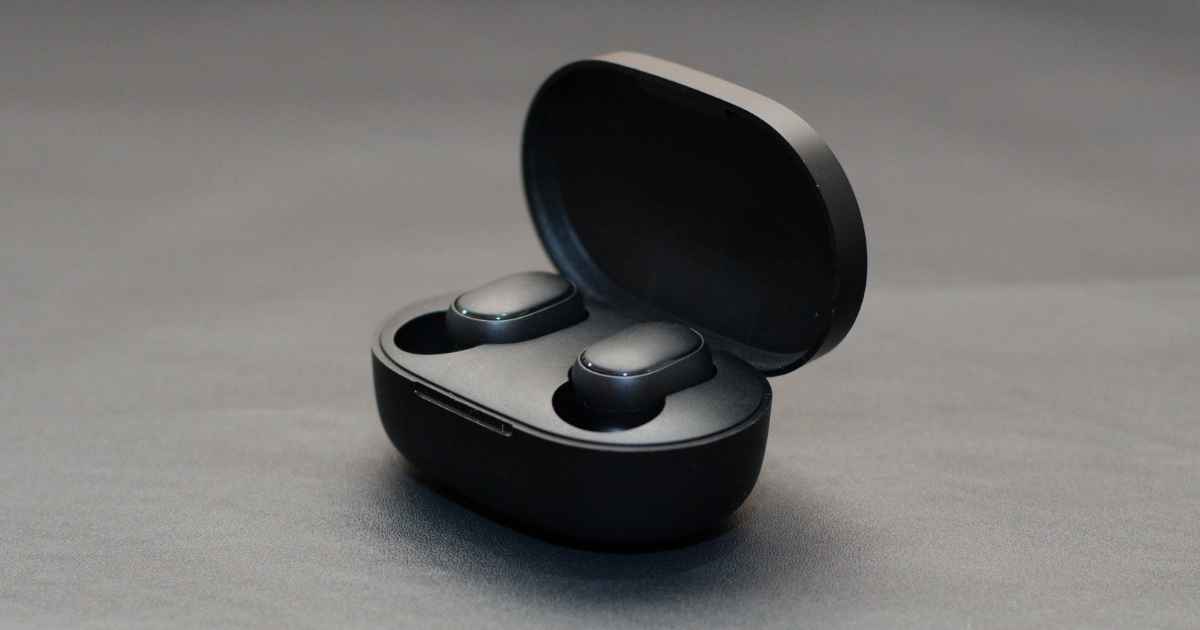
Sleepbuds can provide soothing sounds to help you fall asleep faster and many have noise masking technology so you stay asleep with few disruptions. Don't let snoring, outside traffic or conversation prevent you from getting a restful night's sleep.
These are not your regular earbuds for everyday use, rather they are specifically designed for sleep. Many have dedicated apps that allow you to program the best background noise for uninterrupted sleep.
3. Get Light Therapy Glasses
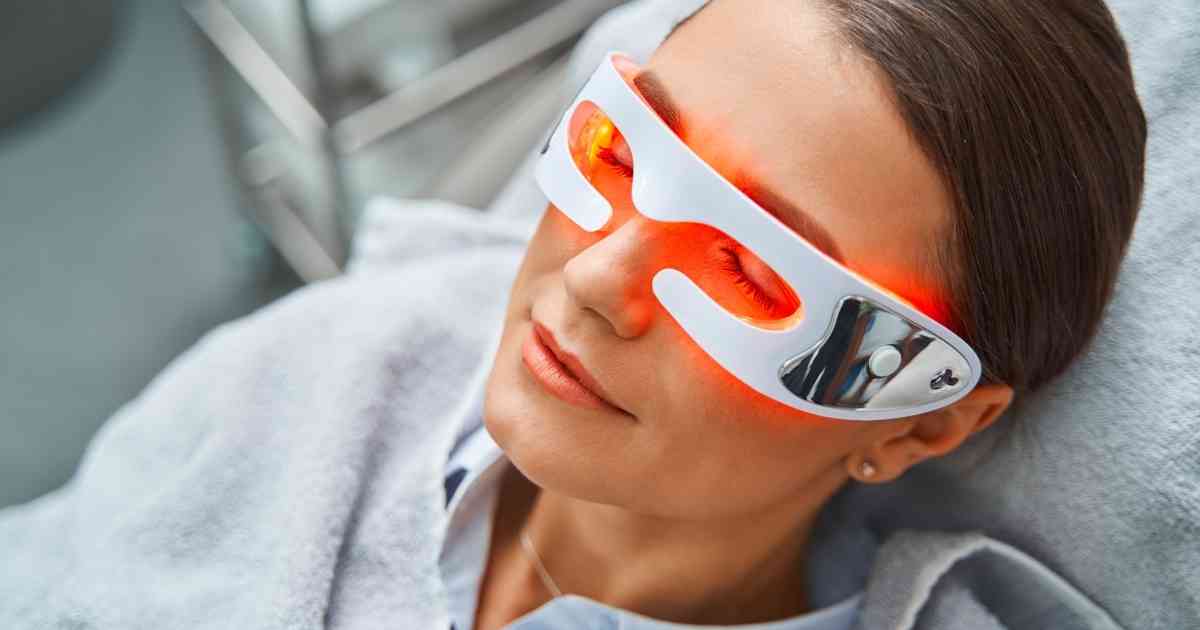
Light therapy can greatly improve your quality of life by treating seasonal affective disorder (SAD), low energy and help to regulate your sleep schedule.
Make light therapy use easier and more convenient with wearable glasses. No more standing in front of a lamp... just put on the glasses for 30 minutes in the morning!
4. Try Sleep Headphones

There are a wide variety of headphones that can be used to ease you into 8 hours of shut-eye with soothing sounds of nature or block out unwanted and disruptive noise.
There are the big bulky ear can types that we all know and love, but there are also earbuds (see #2 on this list) or a sleep headband. Think of a wraparound headband with soft and thin material, but with speakers built in that you hear but don't feel.
5. Try Infrared Light
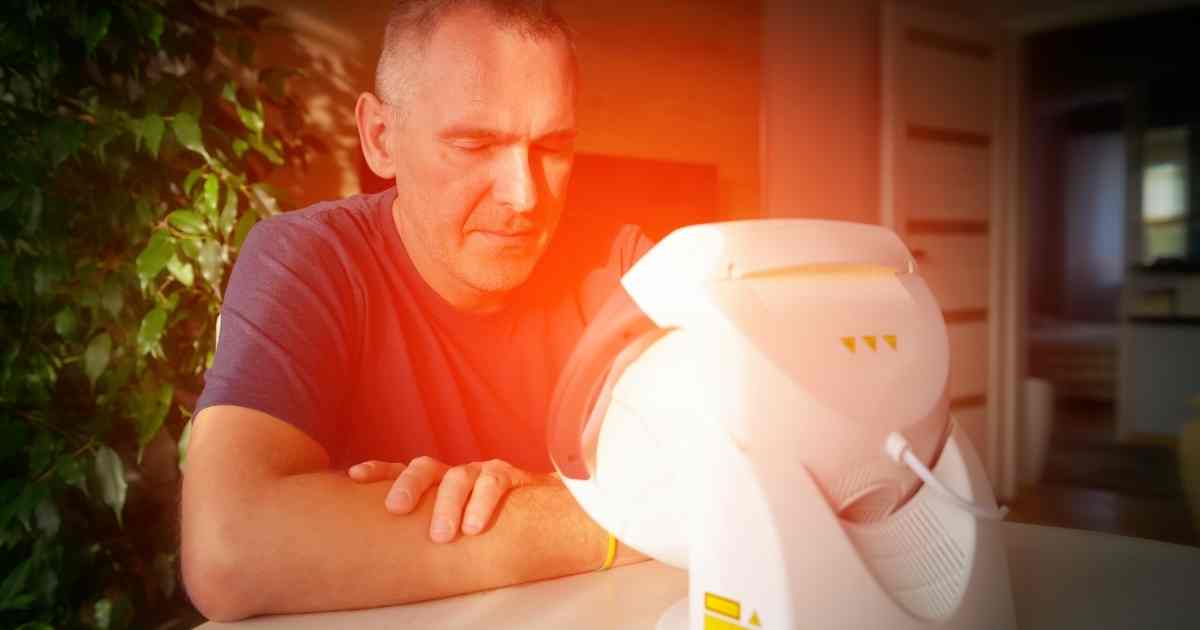
Research into infrared light suggests that it not only can help increase your energy levels, but also help to improve your melatonin levels. Melatonin is important in regulating your sleep and signaling your body that it's bedtime.
There are some great red light therapy devices for home use on the market that have a proven track record of improving sleep, improve skin tone, reduce pain and inflammation... and even stimulate hair growth!
So if you suffer from insomnia and have difficult falling asleep, red light therapy may just do the trick in helping you get those restful zzz's and waking up more refreshed and energized.
6. Get A Sleep Ring

A sleep ring give you all the benefits of a sleep tracker but with the convenience of just slipping it on your finger and forgetting about it!
What sets it apart from fitness trackers is that a sleep ring is meant for a specific purpose. Yes, you guessed it... a sleep ring tracks your sleep related health data better than a fitness tracker.
7. Use Blackout Shades
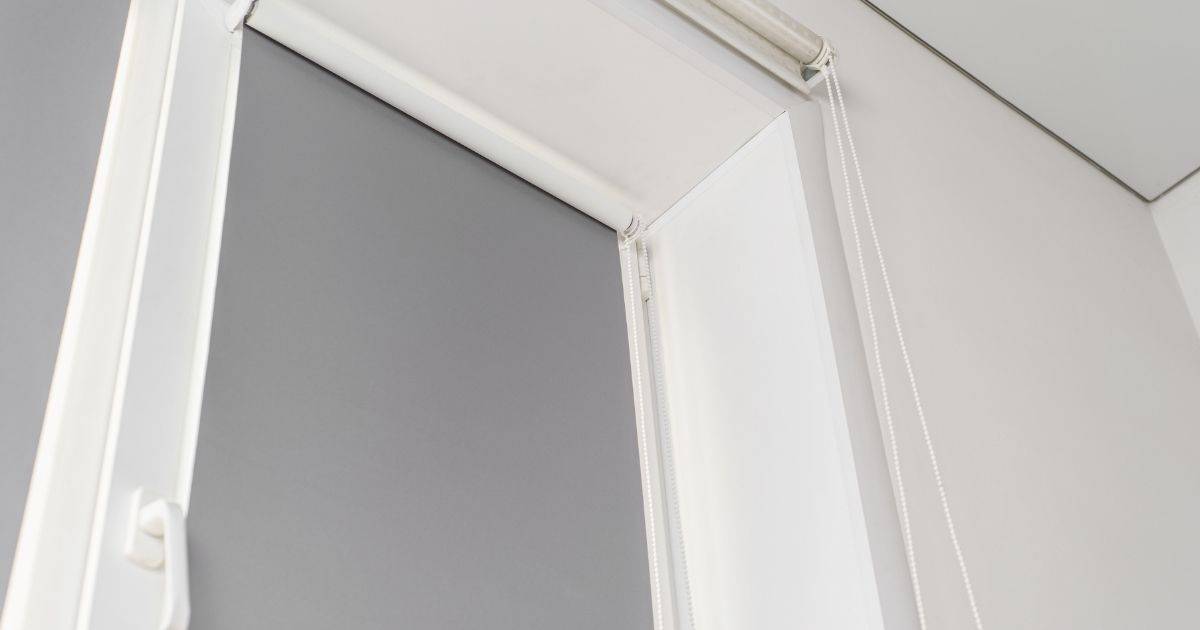
Studies have shown that blackout shades can increase melatonin and help you get to sleep faster and stay asleep.
There is the obvious benefit of blocking out light and signaling your body that it’s time for rest and let you sleep better and not wake up during the night.
8. Get A Sleep Tracker
Sleep trackers are usually devices that are worn around the wrist and provide all sorts of data related to the quality and duration of your sleep. Think heart rate, skin temperature, respiration, length of sleep, etc.
Many have apps where you can track and monitor specific metrics.
Sleep trackers are a good choice if you are data driven and want to easily track any given metric over time.
9. Solve Snoring Problems
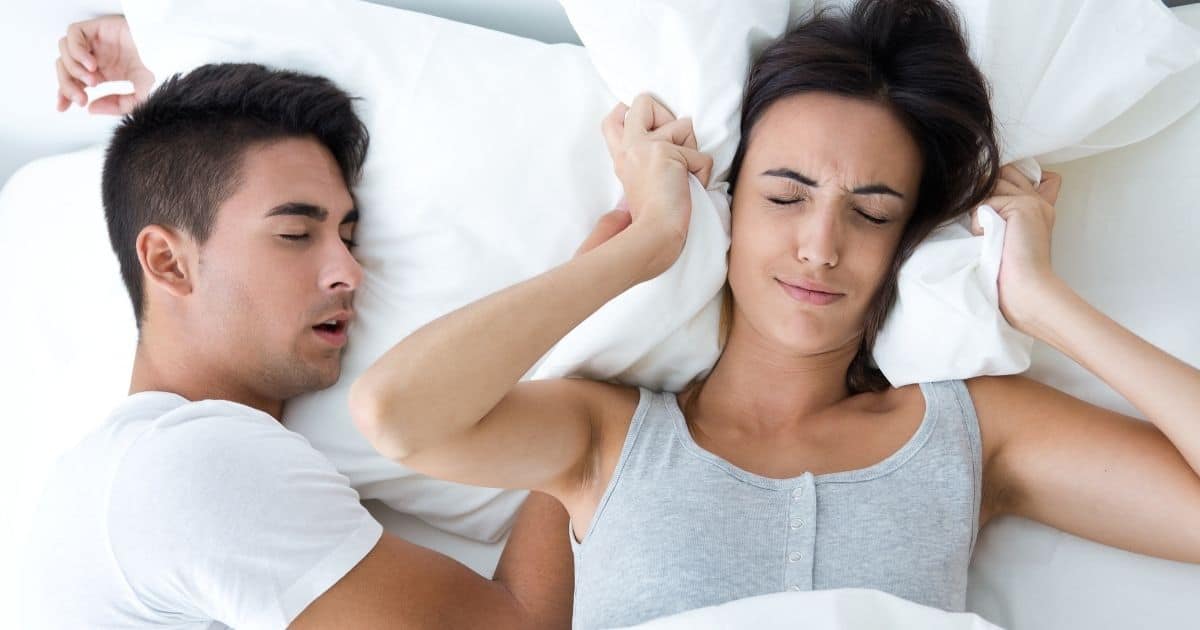
Sometimes figuring out how to sleep better is a two step process. Snoring can be one of those times. It has numerous causes, but the result is the same… poor sleep quality for you and your sleep partner.
Solve your snoring issue and everybody gets better sleep.
10. Get A White Noise Machine
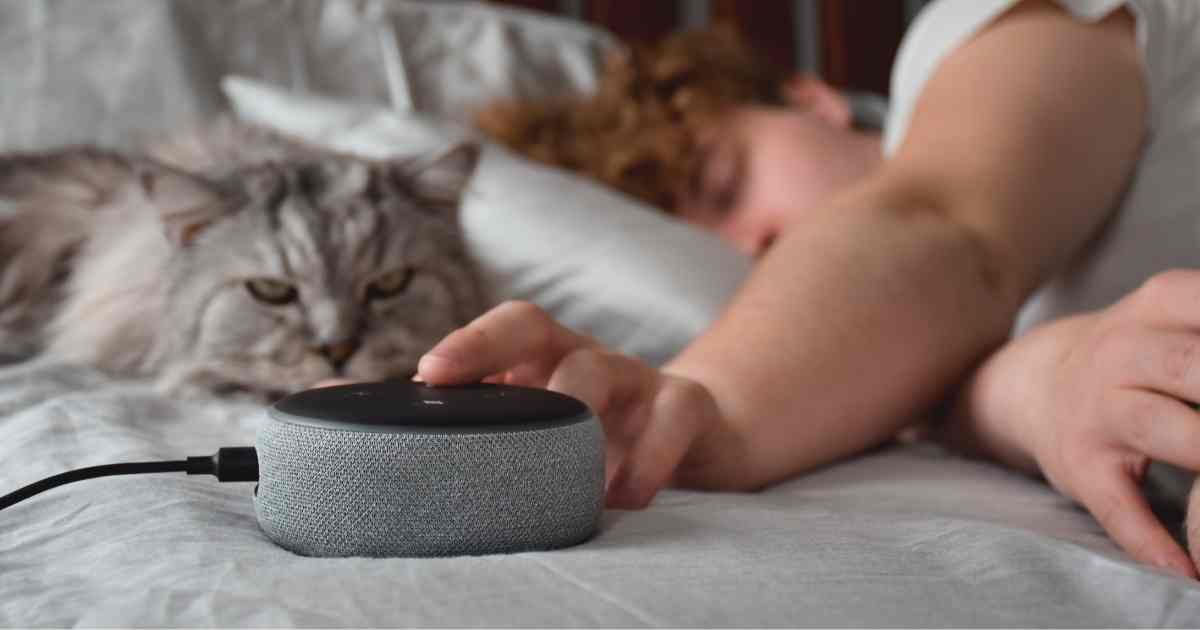
If the sound of rain, the ocean, a summer night, a babbling brook, or other types of white noise relaxes you and helps you sleep, then a white noise machine may be a good option.
Quite frequently there is noise in our environment like traffic, noisy neighbors, and conversations that can prevent us from falling asleep. A white noise machine can block out these noises and help you get to sleep.
11. Get A New Mattress
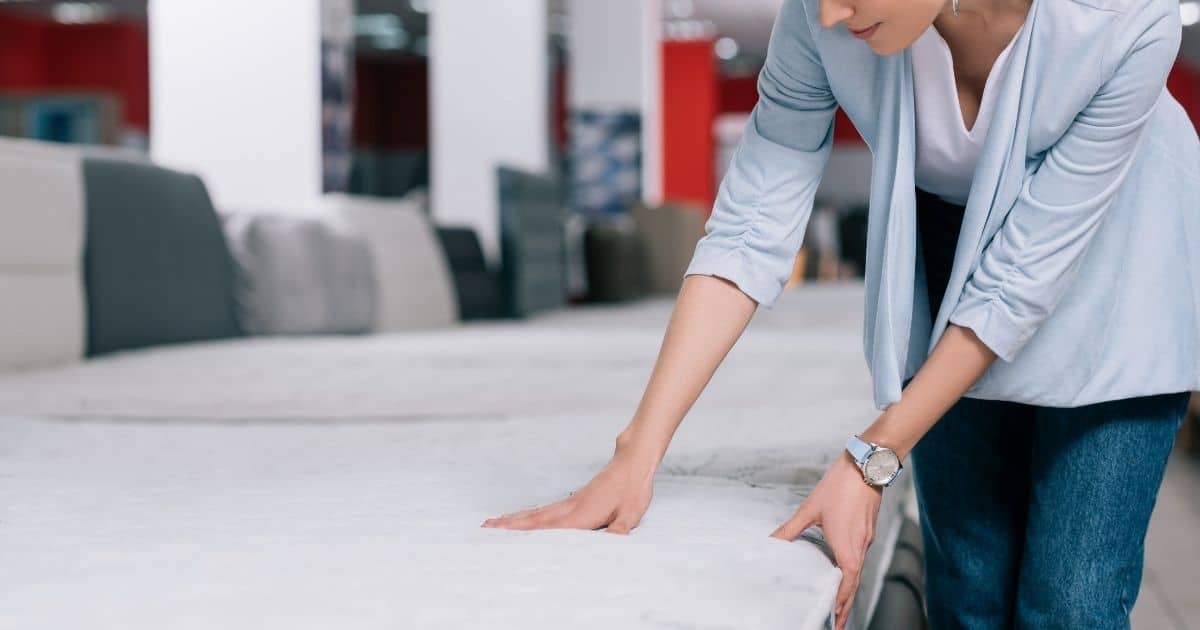
A new mattress is even more important than your pillow. Without the critical support to your spine and your entire body, you’re likely to wake up with aches and pains.
There are many options with regard to adjustable firmness and can greatly improve your sleep quality and comfort. There are many affordable mattress options out there that don't break the bank!
12. Get A New Mattress Topper
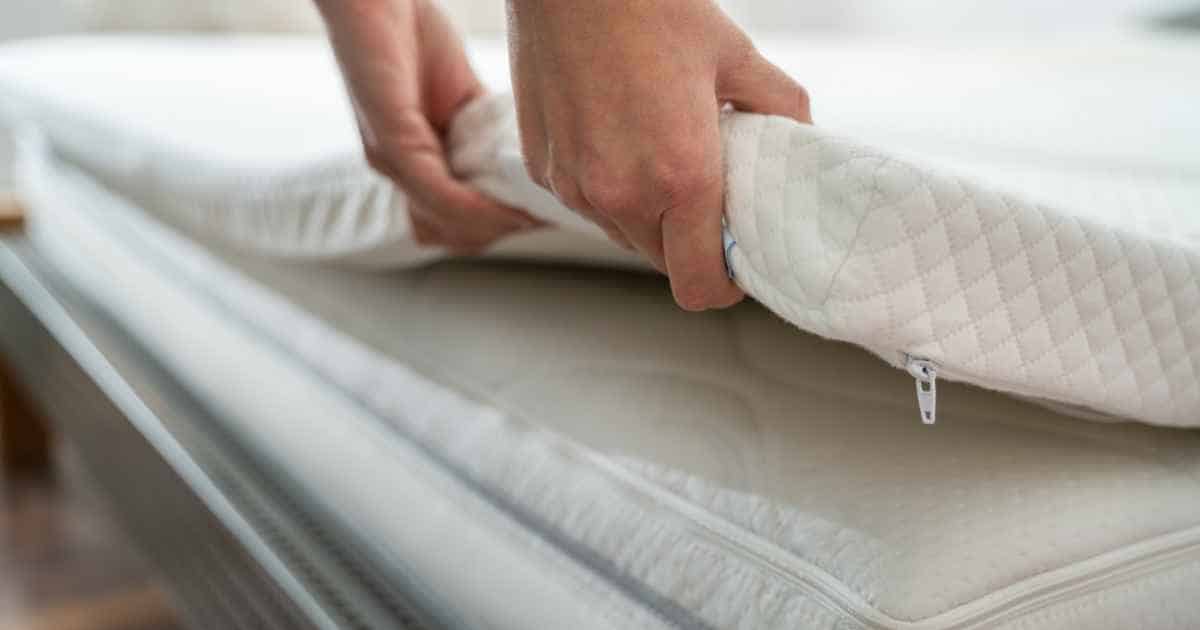
You may not need a new mattress to help you sleep better.
If your current mattress is too soft, a topper can help provide a firmer sleep experience. And if your mattress is too firm, a topper can provide a softer memory foam feel.
If you're a side sleeper, you're more likely to have back, neck, hips, and shoulders pain that can prevent you from getting good sleep.
A good quality mattress topper is a great way to improve your sleep without the expense of buying a new mattress!
13. Get A New Pillow
After you’ve ruled out serious sleep problems, like sleep apnea, snoring, etc, look to some simple and quick fixes like getting a new pillow.
If your current pillow is not providing the proper support, it can cause neck strain or headaches and affect your quality of sleep.
14. Buy Cooling Sheets
Sheets can get overlooked when considering sleep comfort. If your current sheets are trapping body heat and causing your body temperature to rise, it may affect your sleep quality.
Look into cooling sheets for hot sleepers if you have difficulty falling asleep because you're too hot.
Our bodies like a cool and dry environment for optimal sleep.
15. Get A Sleep App

In addition to sleep trackers that monitor your body and analyze sleep, there are apps on your phone that can relax you with spoken language, music and sounds.
Many aim to relax you and relieve stress so you can fall asleep gently and quickly.
16. Get A Mouthguard
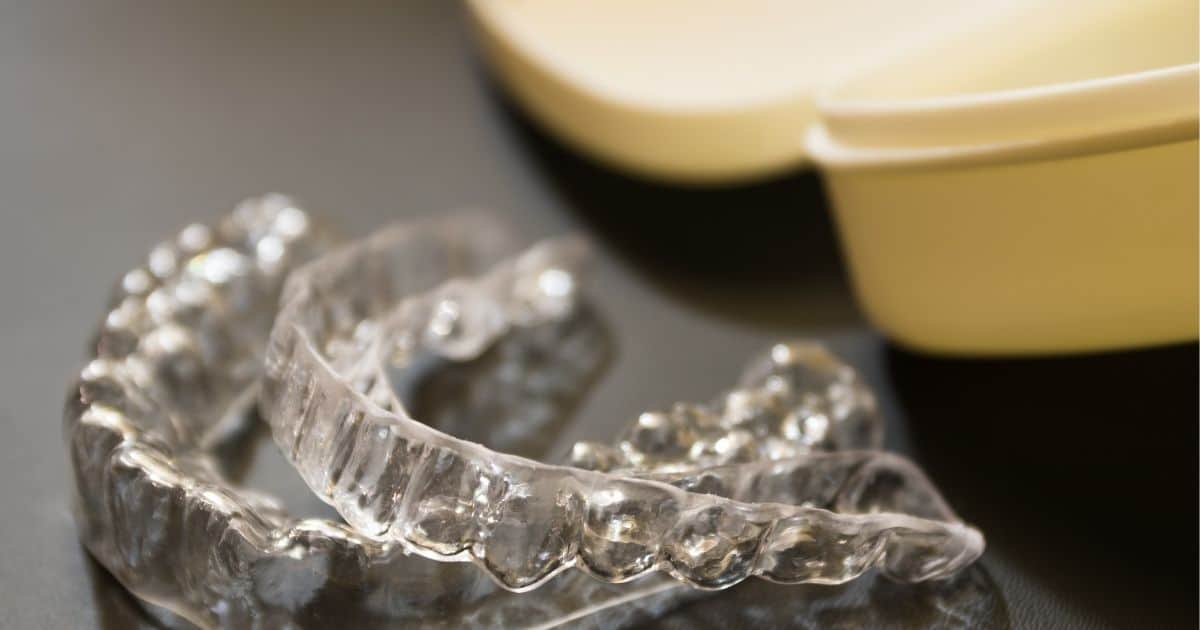
A mouthguard is an anti-snoring device that moves the lower jaw slightly forward and prevents the tongue from blocking the free movement of air in the back of the throat.
Reducing snoring is a simple way to get good quality sleep at night.
17. Sleep Better: Change Your Sleep Schedule
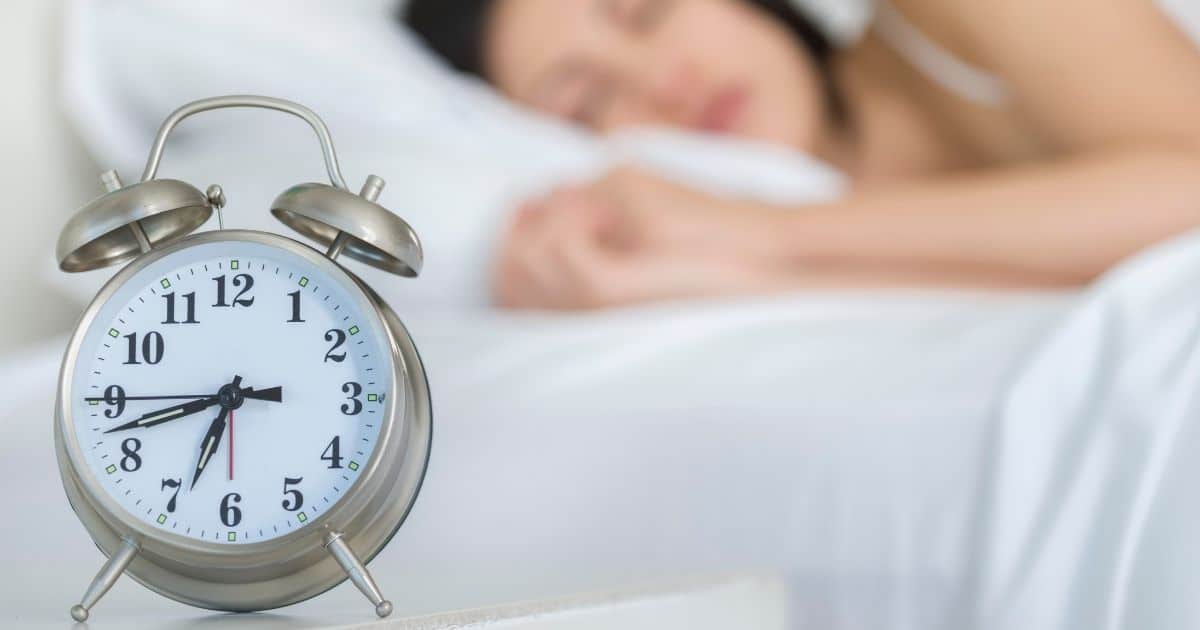
We are all different and can have different sleep patterns. If you have difficulty going to sleep or waking up early, consider going to bed later and getting up later, or go to bed earlier and wake up earlier. Listen to your body and experiment with a different sleep schedule.
18. Set A Fixed Bedtime and Wake Up Time
Once you’ve found the schedule that works for you, the important thing is to stick with it! Being consistent trains your body’s internal to know when it’s time to go to bed and when it’s time to wake up.
Try and make the difference between weekday and weekend time no more than one hour. As with many things in life, in this consistency is key in how to sleep better!
19. Avoid Bright Lights 30 Minutes Before Bedtime
This one is difficult for most of us. We’ve had years of watching TV, reading, and now endlessly scrolling on our phones. With the lights on, we are signaling our circadian rhythm to stay awake.
Only in the last 150 years have we had bright lights at night. Thousands of years of evolution trained our bodies to respond with alertness when it’s bright.
So tune out and turn off your devices when preparing for bedtime and you'll sleep better for it.
20. Turn Off Devices
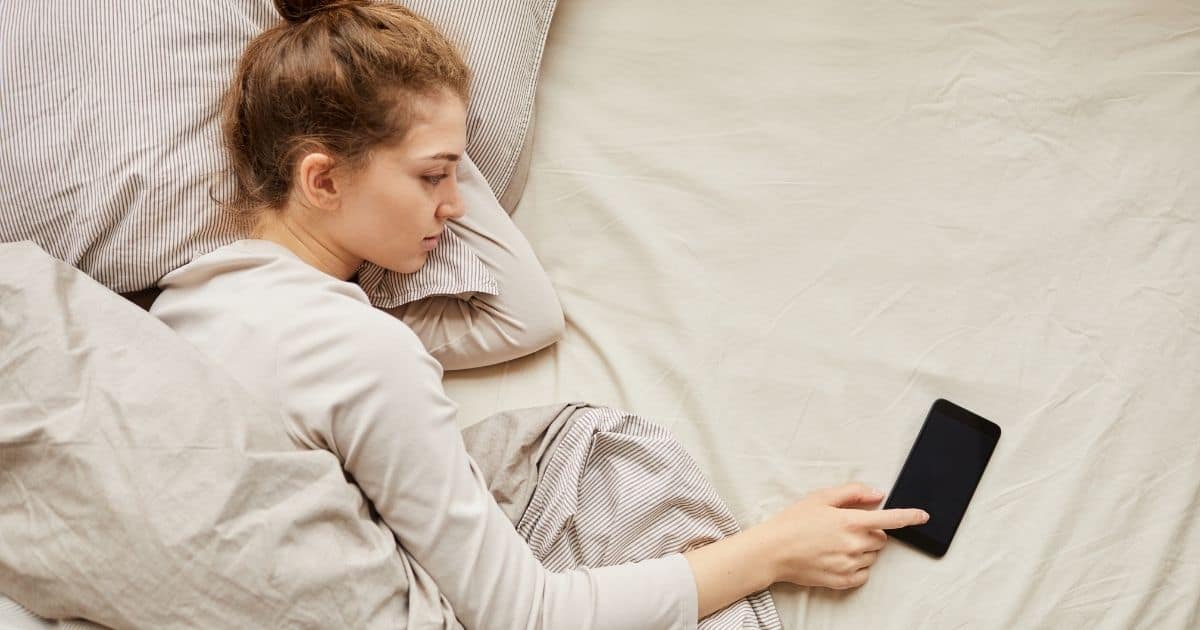
There’s a reason you are scrolling through your social media account and can’t seem to stop. They are addictive by design. By waiting for the next like, message, or notification, you’re delaying the time you will get to sleep.
By turning off your devices, you are signaling your brain that it’s time for rest.
Turn them OFF and don’t just silence them.
21. Get Sunlight During The Day

Sunlight is the main signal to our body’s circadian rhythm, which controls when we know it’s time to wake up and time to sleep.
Getting exposure to sunlight (preferably early in the morning) helps our bodies maintain this natural rhythm and keep our internal clocks set to know that night time is for rest.
22. Get Even Moderate Exercise
Just 30 minutes of moderate exercise during the day can help you sleep better the same day. It can help increase the amount of deep sleep you get and allow you to fall asleep faster.
23. Avoid Alcohol To Sleep Better
While you may feel like alcohol puts you to sleep, it’s definitely not beneficial. Alcohol can prevent you from reaching the REM (Rapid Eye Movement) stage of sleep, which occurs 90 minutes after you fall asleep.
It’s in this later stage of the night that alcohol disrupts your sleep. Skip the alcohol to sleep better and wake up refreshed and not sluggish.
24. Try Melatonin To Sleep Better
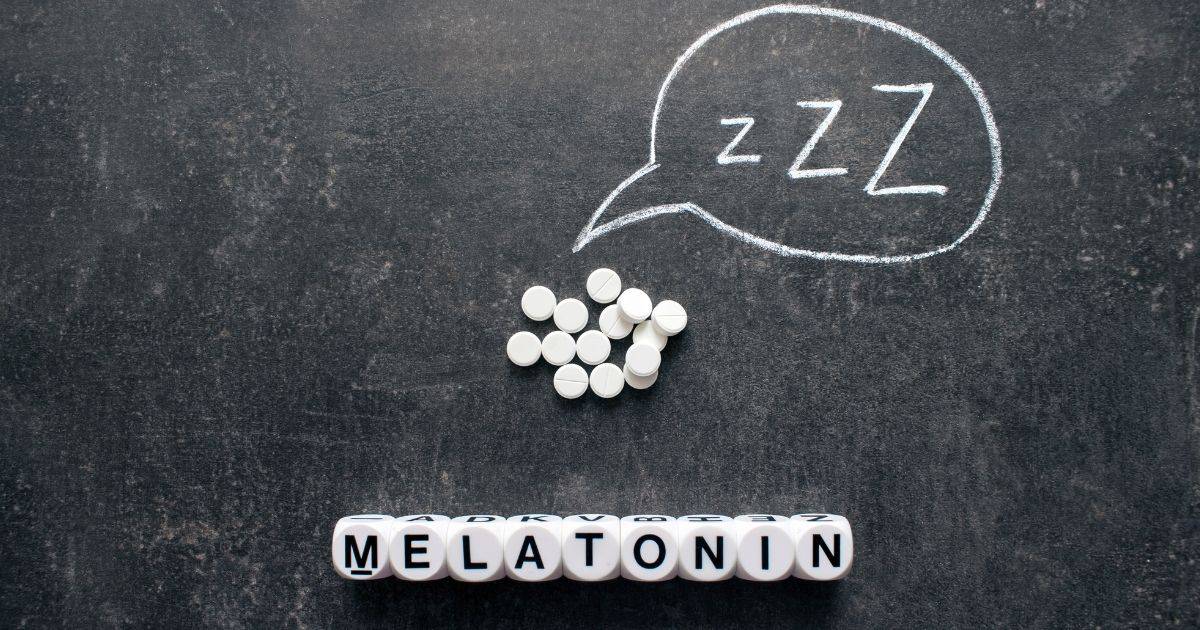
Melatonin is a hormone that is important to our circadian rhythm and signals to the body that it’s night and time to rest. Occasional use of melatonin can help regulate your body’s wake-sleep cycle.
25. Keep A Sleep Diary
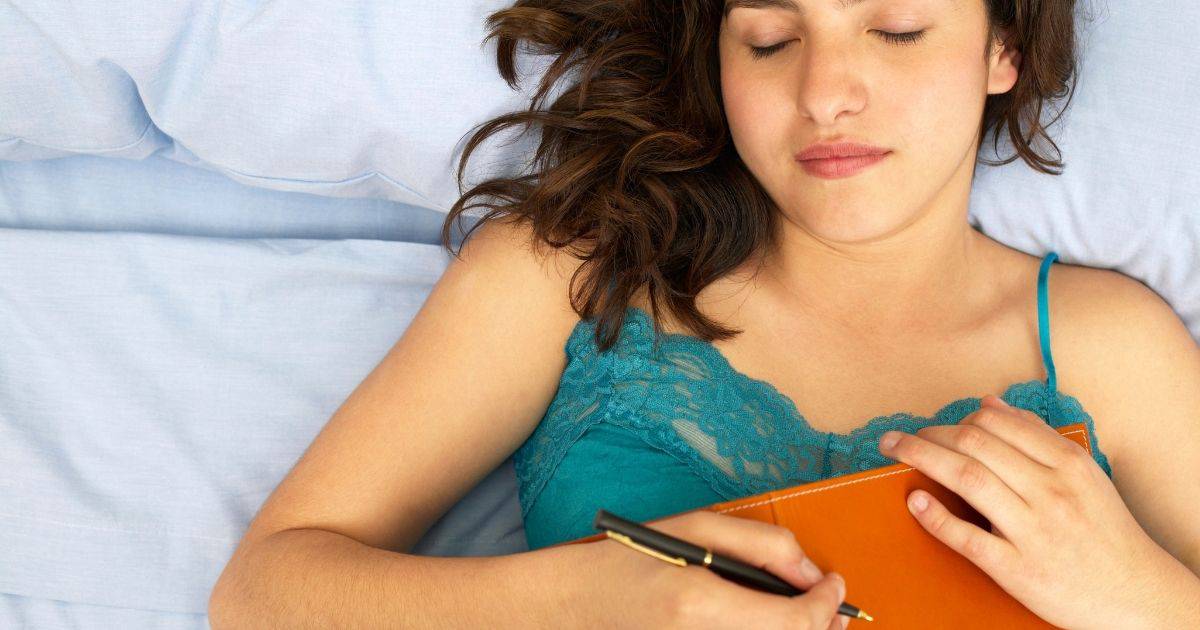
A sleep diary notes the times you fall asleep, how long it took to fall asleep, wake up times, quality of sleep, medications, daily exercise, etc. All good information for your doctor to help diagnose your sleep issues.
26. Don’t Toss And Turn In Bed
If you don’t feel sleepy or just can’t sleep, don’t stay in bed. There is nothing more frustrating than staring at the ceiling and you are not able to sleep.
Break the cycle by getting out of bed and doing something relaxing.
Listen to calm music, drink some no-caffeine tea, read a little. Then go back to bed and try again to sleep.
27. Explore Prescription Medication

This option should be explored under the supervision of your doctor. There are always risks of side effects. Generally, other solutions based on behavior change are preferred for long term use.
However, depending on your sleep problem, they can help you get to sleep and stay asleep.
28. Avoid Caffeine
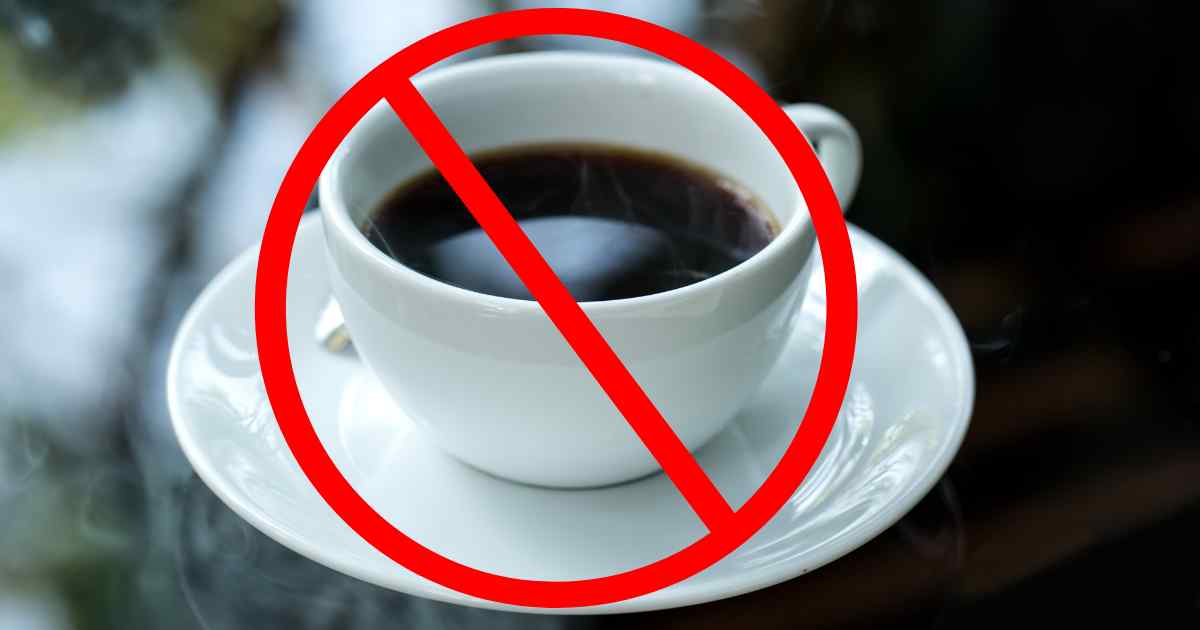
Caffeine is a stimulant and can affect your body’s ability to get deep restful sleep. Our bodies process caffeine in about 5 hours, so avoiding caffeine within that time is the warning.
Determine your tolerance for caffeine and adjust the timing of your caffeine intake.
.
29. Stop Smoking
The dangers of smoking are numerous and causing sleep problems is definitely one.
Nicotine is a stimulant and can prevent you from falling asleep and mask the symptoms of sleep deprivation. It can also be the cause of serious sleep disturbances, including sleep apnea.
30. Check For Sleep Apnea
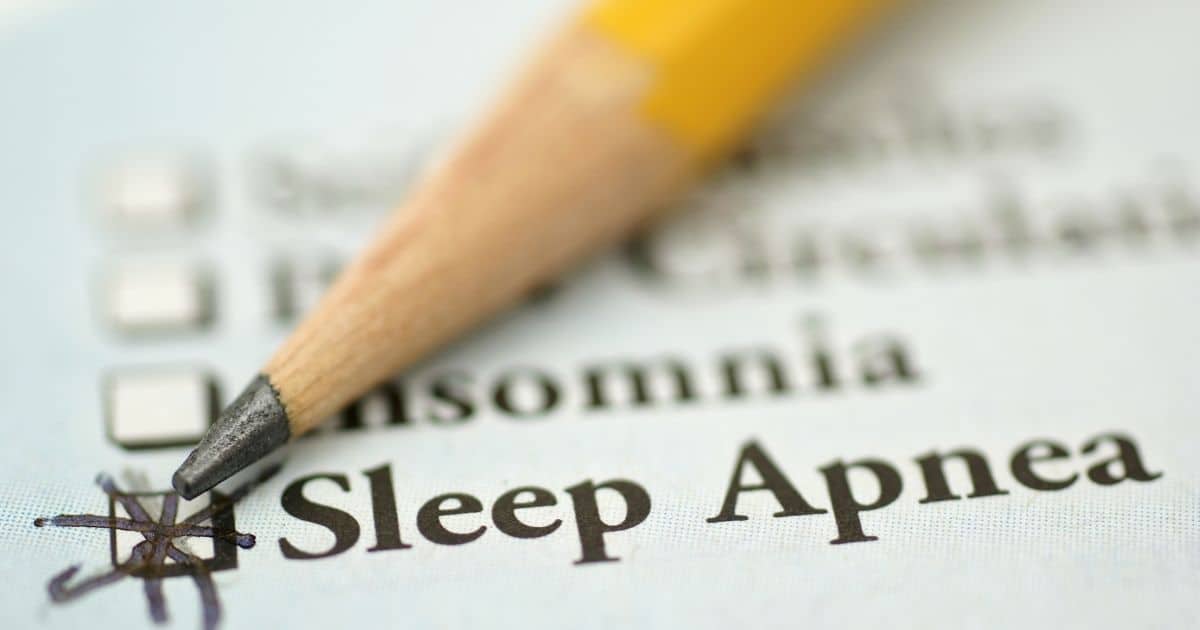
The most common form of sleep apnea is when the soft tissue in the throat and the back of the mouth becomes too relaxed and blocks the flow of air. This results in lower blood oxygen levels and very poor sleep.
Even a mild case of sleep apnea can cause significant levels of sleepiness during the day and a big impact on quality of life. A simple sleep test can be performed to monitor breathing and oxygen levels.
Your doctor may want a more extensive test to be performed in an overnight sleep study center to help you determine how to sleep better.
Get your sleep apnea under control and sleep better.
31. Lose Weight
Losing weight can help you sleep better, since being overweight can cause sleep apnea.
Weight loss can benefit people with most sleep disorders, including fatigue, insomnia, restless sleep, and sleep apnea.
32. Take A Warm Bath
Not only is a warm bath relaxing and calming to our bodies, it can increase the level of melatonin. This is the hormone that signals the body that it is time to rest and prepares us for sleep.
33. Drink Soothing Tea
Like a warm bath, drinking tea can also help to calm and relax our body and prepare for sleep. However, it’s important to avoid any tea with caffeine, which is a natural stimulant.
34. Try Meditation

Meditation is also a good technique to use when trying to achieve a calm and relaxed state before bed. It can help to downshift your brain after a busy day and ease into sleep mode.
Try a meditation app or simple breathing exercises to get your mind off your daily stress.
35. Reduce Stress
Stress can cause insomnia and not allow you to get to sleep, or it can be the cause of you not getting good quality sleep.
Maybe you wake up many times during the night thinking of the stress in life, or you are not able to get to the deep restful sleep that allows us to wake up refreshed.
You can reduce stress by relaxation techniques, breathing exercises, therapy, moderate exercise, etc.
36. Improve Eating Habits
Better eating habits can help you lose weight and therefore get better sleep. Don’t overlook the nutritional quality of your food.
Better nutrition improves your overall health and can increase the quality of your sleep.
37. Declutter Your Sleep Space
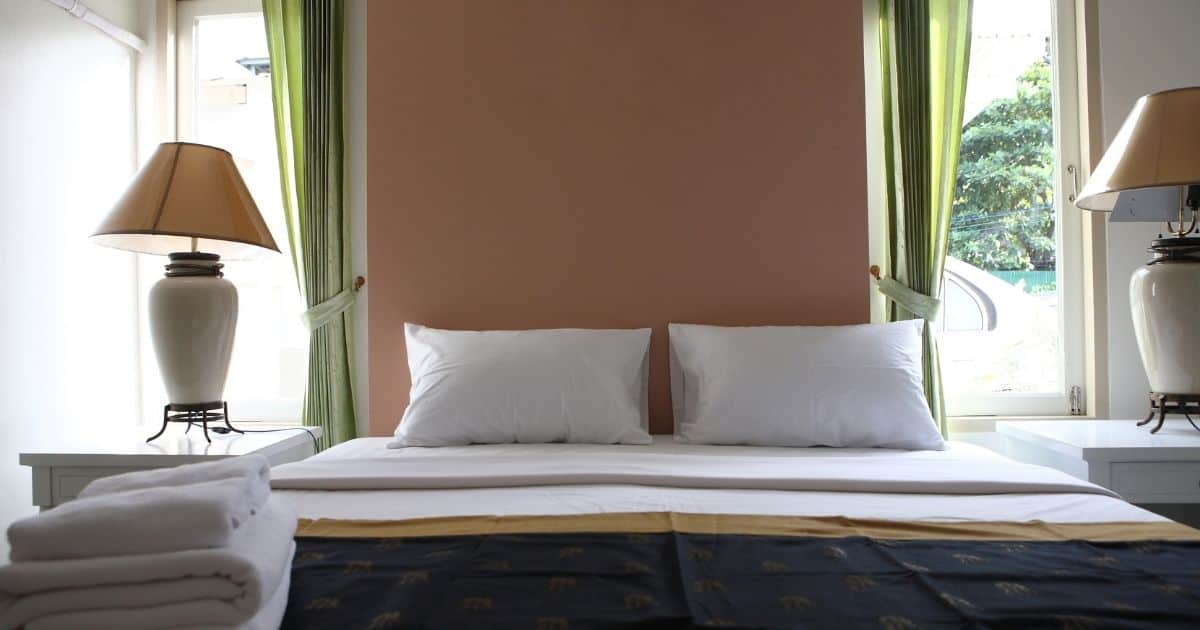
We can meditate and try to reduce stress to get our mind and body prepared for sleep. But don’t neglect your immediate surroundings.
A cluttered and messy sleep space can cause stress and anxiety even if in the subconscious mind.
Organize your sleep space so it doesn’t preoccupy your mind while you’re trying to fall asleep.
38. Maintain A Cool Bedroom
The optimal temperature for sleep is around 65 degrees F (18.3 C). Your body naturally lowers its temperature when you sleep.
If the surrounding temperature is too cold or too hot, then you are more likely to wake up.
39. Learn Your Sleep Requirements
We have all heard the sleep requirement for an adult is 8 hours. However, that may not be true for everyone. Some people require 6 hours and others 9 hours of sleep.
If you are at the lower end of hours of sleep and you are not tired during the day, then don’t worry about it.
The average 8 hour requirement may not fit you, so don’t stress about it.
40. Keep A Quiet Bedroom
Creating a calm and quiet environment can help you get to sleep faster and stay asleep. Blocking out the distractions and stress of the day can help your body prepare for sleep.
41. Try CBD Oil
More research needs to be done on CBD and its effects on sleep. However, there is evidence that CBD oil can help to relieve anxiety and insomnia, and therefore prepare your body for a more restful sleep.
There is research being done to determine if it can help with the regulation of our circadian rhythm, which is so important to good sleep.
42. Use Ear Plugs
Ear plugs are a pretty simple solution.
If your sleep environment is noisy, perhaps you live on a busy street or have a noisy neighbor, ear plugs can be a simple and low cost solution.
43. Use An Eye Mask
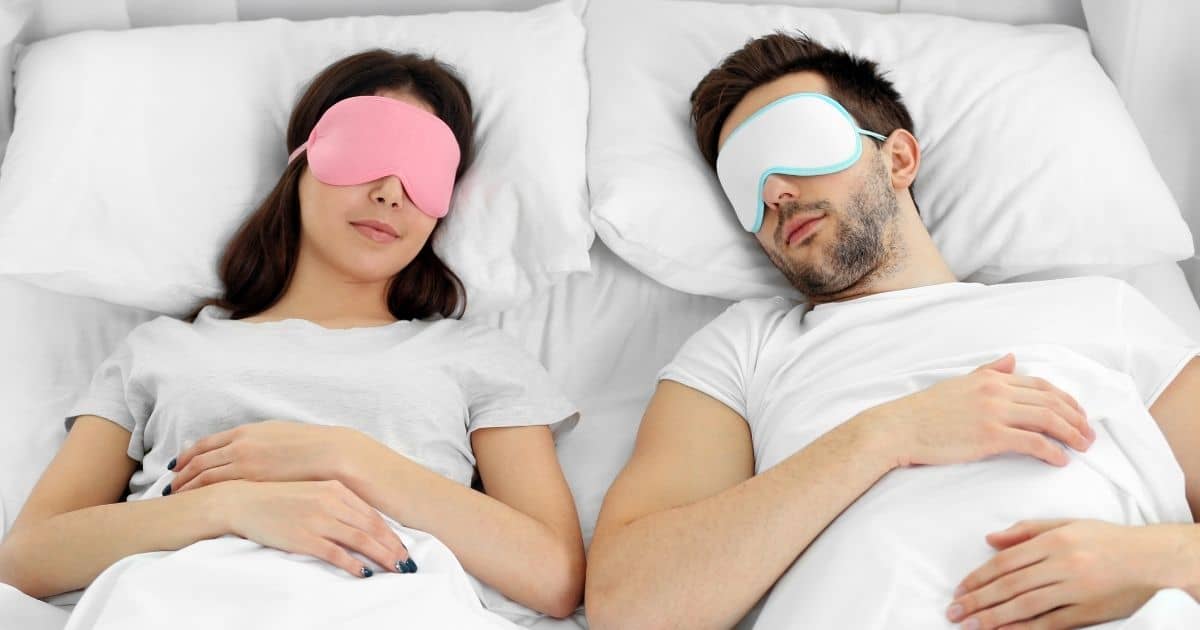
Blocking light in your sleep environment helps to create a calm and quiet environment. If blackout shades are not a good option, then an eye mask is the next best thing.
Preventing light exposure can help you get to sleep faster and stay asleep by decreasing any stimulus.
44. Get A Chin Strap
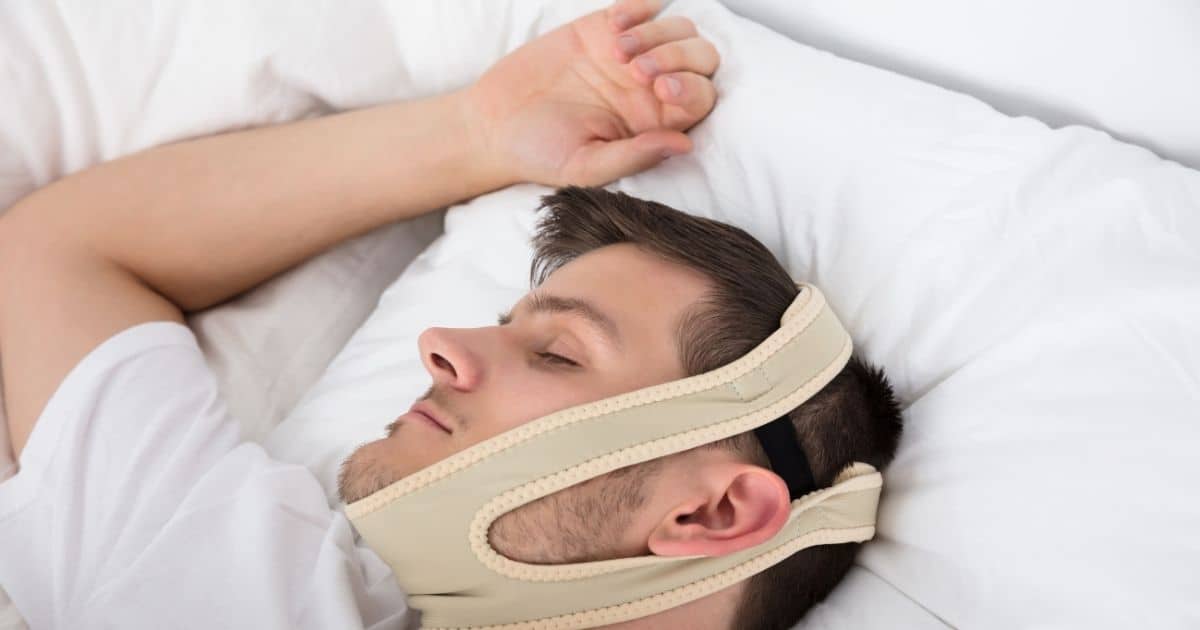
A chin strap can be beneficial if you snore with your mouth open and it negatively impacts the quality of your sleep.
The chin strap is like a fabric sling for your jaw that keeps your mouth closed while sleeping. This forces you to breathe through your nose normally.
45. Change Your Sleep Position
Experts agree that sleeping on your side is the optimal position for the best quality sleep. It relieves pressure on your spine and vital organs.
Sleeping on your stomach is the worst position. It doesn’t match the natural curve of your spine and causes stress on muscles and joints.
46. Use Bed Only For Sleep and Intimacy
Don’t use your bed for watching tv, scrolling on your phone, eating in your bed, or doing work on your laptop.
Not only is the artificial light signaling your body to stay awake, you are not training your mind to associate your sleep space with rest and intimacy.
47. Try Soothing Essential Oils
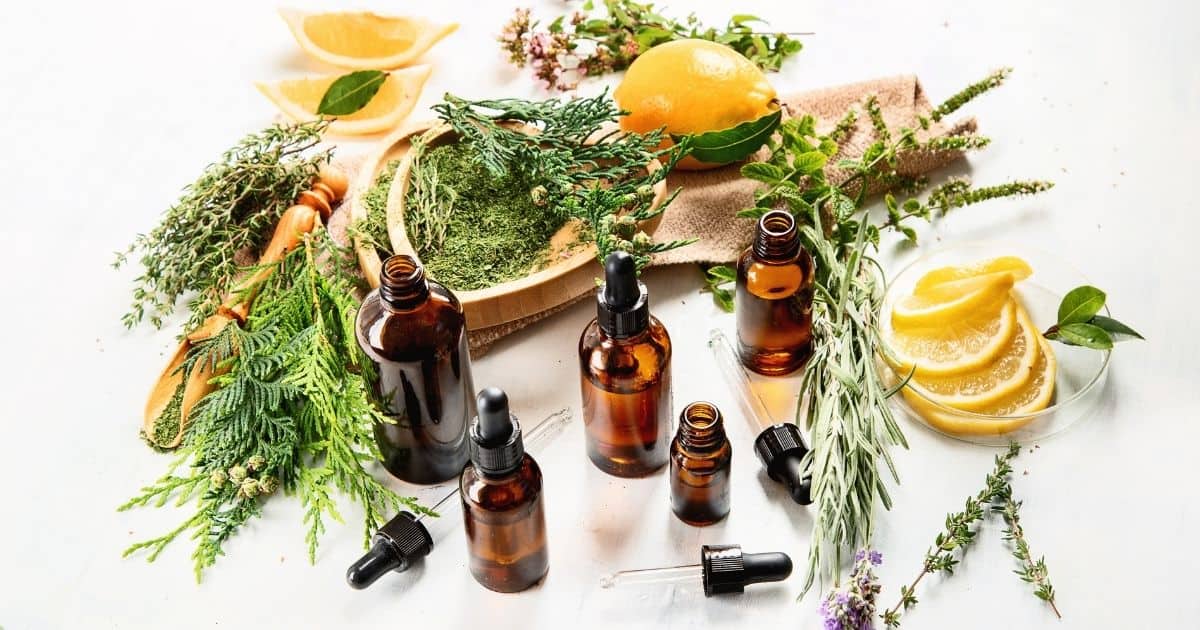
There’s a reason you are scrolling through your social media account and can’t seem to stop. They are addictive by design. By waiting for the next like, message, or notification, you’re delaying the time you will get to sleep.
By turning off your devices, you are signaling your brain that it’s time for rest.
Turn them OFF and don’t just silence them.
48. Get Nasal Strips
Snoring can be the underlying cause of poor sleep. Nasal strips can be used to keep the nasal passages open while sleeping.
If congestion is the problem, then these strips can ensure that air moves freely through the airway and no vibrations occur.
49. Practice Breathing Techniques
Breathing techniques are similar to meditation in that they can help you lower stress and create a relaxed state at bedtime.
This relaxed state is accomplished by techniques that replenish the oxygen supply in the body’s organs and can allow you to fall asleep faster.
50. Avoid Late Night Meals
It’s not just caffeine you should avoid before bedtime. Any foods that are also high in fat should be avoided, since they can be hard to digest and can prevent you from falling asleep fast.
They can also cause multiple trips to the bathroom during the night and negatively impact your sleep quality.
51. Talk To Your Doctor

Finding the solution to your sleep problems should always involve your doctor. Keep him or her informed of your remedies and progress.
When the time comes to review medical options, he or she will be up to date and can recommend the best course of medical action to take.
52. Tongue And Throat Exercises
Sleep problems can occur when the tissue in the back of the throat becomes too relaxed and blocks the flow of air. This can result in snoring, lack of good sleep, and sometimes develop into a case of sleep apnea, which can cause more serious health risks.
Well, the good news is there are natural and non-invasive solutions to strengthen the muscles in the throat so they don't block airflow. Once exercise is to repeat all the vowels (A, E, I, O U) out loud and clearly for 3 minutes.
Over time this will help strengthen the muscles in the throat and can help with snoring and help you get better sleep.
53. Stay Well Hydrated
Dehydration can cause your melatonin levels to drop and disrupt your circadian rhythm, which is important for signaling the body when to rest and wake up.
Drinking too much water can cause multiple nighttime trips to the bathroom, so finding the right balance is important.
54. Try Nasal Spray
If snoring is the cause of your poor sleep quality, then a blocked nasal passage may be the culprit.
A homemade or store bought nasal spray to clear the sinuses and allow air to flow freely may eliminate the problem and allow you to sleep better.
Conclusion
There are many causes of poor sleep. But there is good news!
And that is...there are many great solutions to get better sleep. Some are even free and easy to try to see if it works for you. You do have the tools and know-how to wake up feeling refreshed and ready to meet the challenges of your day!
Go ahead and experiment with some of these solutions to get better sleep. And improve your quality of life!

